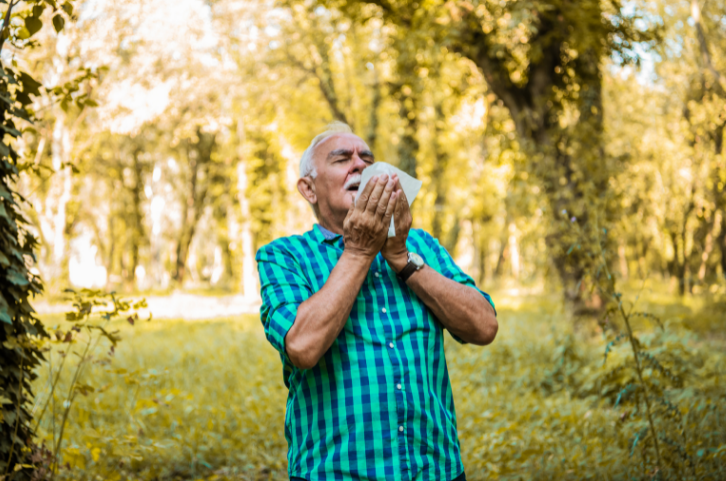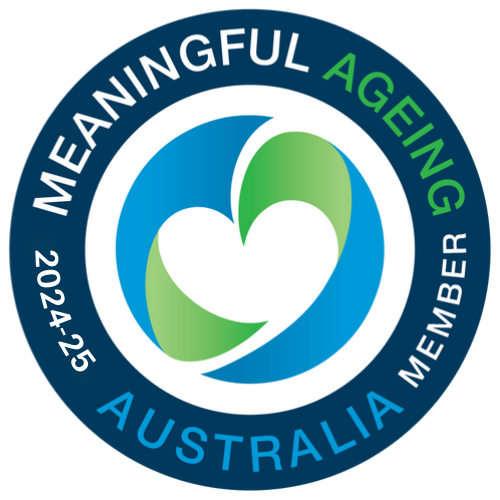We finally get to say goodbye to the cool winter days and hello to spring! With the arrival of this warmer season also comes with it blossoming plants and of course, pollen.
Seasonal allergies or hay fever may occur when you come into contact with environmental allergens such as pollen and spring is when you find airborne grass pollens at their peak.
Symptoms of hay fever include:
- sneezing
- a runny or stuffy nose
- itchy ears, nose and throat
- red, itchy or watery eyes
- headaches.

Did you know hay fever is an allergic reaction?
Your nose acts as a filter, with tiny hairs and mucus that line the nasal passages. They trap dust, pollens and other microscopic particles. A person with hay fever is allergic to some of the particles that get trapped in the nose, such as pollen.
While pollen seems like a harmless substance, for some of us it means that the immune system sees pollen as a dangerous substance and tries to attack it, causing the symptoms of hay fever.
So even if this is a natural response by the immune system, extra precautions should be taken to ensure seniors will be safe from this common allergy.
Why should we watch out for hay fever in seniors?
Allergy symptoms can be concerning when present in seniors, especially if they already have cardiovascular issues.
Also, common medications to treat simple hay fever may not be suitable for older people and can be cause for a range of unwanted side effects for seniors such as high blood pressure.
Further, seasonal allergies can lead to other issues commonly experienced by seniors such as geriatric rhinitis. This is where the surrounding cartilage of the nose weakens due to aging and can lead to discomfort in the nose and reduced blood flow.
Tips for seniors to manage hay fever
1. Avoid Possible Allergens
Preventative measures are the first step to keeping seniors in your life safe. By no means do we mean “cut down all the pretty spring flowers” but maybe move them away from windows so that pollen doesn’t drift indoors.
Monitoring the daily weather via a weather app can help identify potential high pollen count days and allow you to decide if its best for the seniors in your life to stay indoors that day. On these days it would be a good idea to keep all windows closed and use air conditioning if possible.
2. Look for Allergy Symptoms
Don’t assume seniors have outgrown allergies – they are just as likely to experience hay fever when spring blooms. Caregivers and family members should look out for typical symptoms such as sneezing, runny nose, coughing and itchy, watery eyes.
3. Inform Their Doctor Immediately
Sometimes these symptoms can be missed or seniors living with dementia are not able to express their discomfort. So if you or a caregiver have concerns about seasonal allergies, bring it to the attention of the doctor immediately so it can be treated. This is especially important for seniors with underlying health conditions like cardiovascular issues.
Further, over the counter medication may NOT be suitable for seniors. The doctor may suggest saline nasal sprays to help rinse allergens out of sinuses and nasal passages.
4. Lifestyle Changes
Introducing an air purifier with a HEPA filter may be ideal for seniors when indoors to help filter out pollen and other allergens.
When going out for walks, ensure seniors are wearing sunglasses to minimise any eye irritation and upon returning home, have seniors and visitors remove their shoes before entering their residence to avoid tracking pollen inside the home.
With these steps in mind, you can be confident in your ability to take care of a senior during this Spring season and can take the necessary steps to ensure their safety.
Warning: Symptons of hay fever may be similar to Covid-19. Be sure to always get tested if you are displaying symptoms of Covid-19. Find out more here.
You can find more interesting health resources for seniors here.








